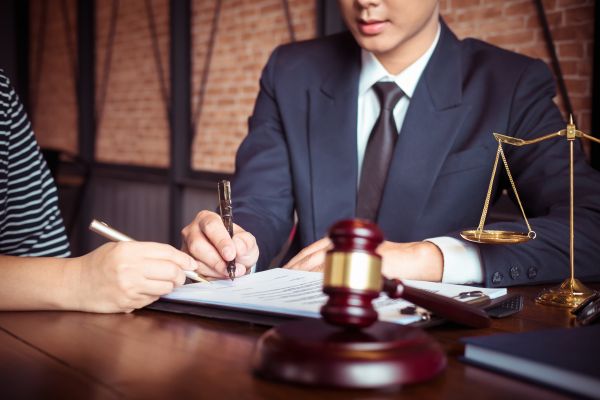Let’s be real—slip and fall accidents happen more often than people think. One moment you’re walking through a grocery store or across a freshly mopped lobby, and the next thing you know, you’re on the floor with pain shooting up your back. It’s embarrassing, sure, but more importantly, it can leave you with medical bills, lost wages, and long-term physical problems. That’s where slip and fall injury claims come in. They’re not just about pointing fingers; they’re about protecting your rights and making sure you’re not left paying for someone else’s negligence.
What Are Slip and Fall Injury Claims?
Slip and fall injury claims are legal cases filed when someone gets hurt after slipping, tripping, or falling on another person’s property. These claims usually fall under premises liability law, which basically says that property owners are responsible for keeping their spaces reasonably safe for visitors. If they don’t, and you get hurt, you may have the right to seek compensation.
Now, this doesn’t mean every slip is grounds for a lawsuit. You can’t sue a homeowner because you tripped over your own untied shoelace. The key is proving negligence—meaning the property owner knew (or should have known) about the hazard and failed to fix it or warn you.
Common Causes of Slip and Fall Accidents
The thing is, slip and fall cases come in all shapes and sizes. Some of the most common reasons people file slip and fall injury claims include:
- Wet floors without warning signs
- Uneven sidewalks or broken pavement
- Poor lighting in hallways or parking lots
- Cluttered walkways or debris left on the ground
- Loose rugs or torn carpeting
- Icy steps or untreated driveways
It’s not always obvious in the moment what caused the fall, but documenting the scene as soon as possible can make a huge difference later.
Who Can Be Held Responsible?
Here’s where things get interesting. Responsibility depends on where the accident happened. If you fall in a store, the business could be liable. If it’s an apartment complex, the landlord might be on the hook. If it’s a private home, the homeowner (and often their insurance) may be responsible.
Slip and fall injury claims often hinge on one big question: Did the property owner take reasonable steps to prevent the accident? If the answer is no, that’s when liability usually comes into play.
Proving Negligence in a Slip and Fall Case
This is where many people hit a wall. It’s not enough to say, “I fell, so someone has to pay.” You have to show that negligence caused the fall. Typically, this involves proving:
- A dangerous condition existed (like a puddle or broken step).
- The property owner knew or should have known about it.
- They didn’t fix it or properly warn visitors.
- That failure directly led to your injury.
Sounds simple, but in reality, proving all this can be tricky. That’s why evidence—photos, witness statements, medical records—is everything in slip and fall injury claims.
What Kind of Compensation Can You Expect?
If your case is solid, you might be entitled to compensation for a variety of damages, such as:
- Medical bills (from ER visits to physical therapy)
- Lost wages if you had to miss work
- Pain and suffering (because injuries aren’t just physical)
- Future medical expenses if your recovery is ongoing
Sometimes, settlements happen quickly if liability is clear. Other times, insurance companies drag things out or deny responsibility, which can push cases into court.
Steps to Take After a Slip and Fall Accident
If you’re reading this after a fall, first off—take a breath. Here are some practical steps that can strengthen your slip and fall injury claim:
- Report the accident immediately to whoever is in charge of the property.
- Take photos of the scene and your injuries.
- Collect contact info from witnesses, if there are any.
- Get medical attention right away (even if the injury feels minor at first).
- Keep records of all related expenses.
Skipping these steps can give the other side room to argue that your injuries aren’t serious or that the accident didn’t even happen the way you said.
How Long Do You Have to File a Claim?
This depends on where you live, but most states have a statute of limitations—usually anywhere from one to three years. That may sound like plenty of time, but the longer you wait, the harder it becomes to gather strong evidence. Memories fade, surveillance footage gets erased, and witnesses move on. If you’re serious about pursuing a slip and fall injury claim, it’s best not to wait until the clock is almost up.
Do You Need a Lawyer?
Technically, you can file slip and fall injury claims on your own. But let’s be honest—it’s tough to take on property owners, insurance adjusters, and legal technicalities without help. A personal injury lawyer can evaluate your case, gather evidence, negotiate with insurers, and, if needed, take your claim to court. They usually work on a contingency basis, meaning they only get paid if you win. That alone makes it less risky to seek professional help.
Common Myths About Slip and Fall Cases
There are a lot of misconceptions out there. Some people think slip and fall injury claims are just “frivolous lawsuits.” Others assume that unless the fall happened on business property, they have no case. The truth is, these claims exist to hold property owners accountable for safety. And no, you’re not being greedy for wanting your medical bills covered—you’re just standing up for yourself.
Final Thoughts
Slip and fall injury claims can feel overwhelming, especially when you’re dealing with pain and recovery at the same time. But the reality is, you don’t have to shoulder the financial burden of an accident that wasn’t your fault. By documenting everything, acting quickly, and considering legal help, you put yourself in the best position to recover both physically and financially.
At the end of the day, accidents happen—but that doesn’t mean you have to pay the price for someone else’s negligence. If you’ve been injured in a slip and fall, know your rights, protect yourself, and take the steps necessary to move forward with confidence.



